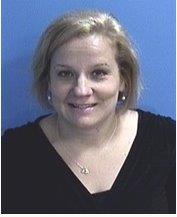
Everyday Advocacy: End of life planning and care
"It is important to talk to your family and loved ones about the medical care that you would want or not want at end of life."
Constance Ducharme RN BSN CHPN
The challenge
In a survey from The American Journal of Preventive Medicine, only 26.3% of 7,946 respondents had an advance directive. The most frequently reported reason for not having one was lack of awareness.
Integra Community Care Network, an Accountable Care Organization (ACO) within the Rhode Island based Care New England (CNE) health system, was founded in May 2014 to serve an attributed population of 130,000 Medicare, Medicare Advantage, Medicaid and commercial patients. The Integra Complex Care program (CCM) currently serves the top one to five percent of the highest utilizers of health care dollars as well as the most clinically complex patients. The majority of the attributed population is over 65 years of age and lacking advance directives and goals of care for end of life. Through our community involvement, we discovered that most people don't like to talk about dying, especially their own death. Our patients verbalized that two of the barriers for not completing advance directives are access to health care education on advance care planning as well as denial and procrastination.
We aimed to address common barriers to completing advance directives by creating and delivering a curriculum to seniors in a community-based setting by a registered nurse certified in palliative and hospice care, Constance Ducharme, RN BSN CHPN. We anticipate that with increased education around having conversations about goals of end of life, we can increase the number of advance directives in the state of Rhode Island, thereby improving care at end of life.
Results
The program has been well received in the senior settings as well as the medical community. Currently, the program has been delivered at five senior centers in Rhode Island. To date, a total of 50 seniors received the "What Matters Most to You?" curriculum. Participants were surveyed at the end of each session to help us evaluate the program. We asked participants to assess the degree to which the learning objectives were met. On a scale of 1 to 5, with 5 being "Outstanding," participants overwhelmingly rated the presentation as having met the learning objectives.
Participants were also asked to answer three questions about their experience and comfort with advance directives before and after the session. These questions were added to the survey at a later time, therefore we present results from one senior center site. Half of respondents reported that they had not talked to their love ones about their wishes for end of life, with 70% of respondents comfortable having "the conversation" with loved ones as a result of the presentation.
Advocacy Resources
